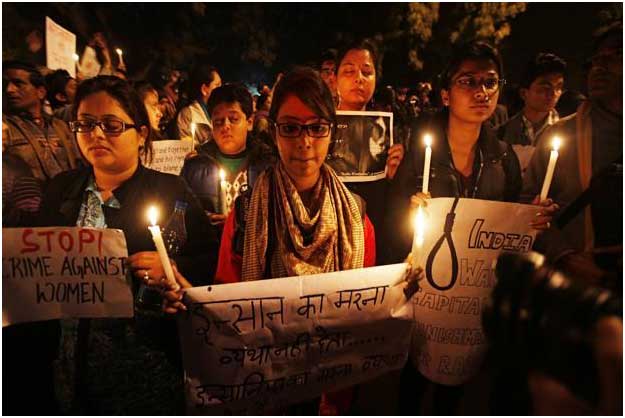Note4Students
From UPSC perspective, the following things are important :
Prelims level: na
Mains level: criminal justice system
Central idea
The article highlights gender-based challenges in India’s criminal justice system, citing delays and discrimination against women complainants. Despite increased representation and specialized stations, the study in Haryana indicates persistent issues. The central idea emphasizes the need for reforms, gender sensitivity, and equal treatment within the justice system.
Key Highlights:
- Justice System Accessibility: Citizens face challenges accessing the criminal justice system in India due to police station unapproachability, court delays, and outdated forensic equipment.
- Gender Disparities: The study reveals “multi-dimensional discrimination” against women in the justice system, with differential treatment at all stages and levels.
- All-Women Police Stations: Despite efforts, the study, focused on Haryana, suggests that women face delays, dismissals, and lower conviction rates in cases where they are complainants.
- Limited Representation: While more women are joining the justice system, the study emphasizes the need for increased sensitivity and recruitment drives for female officers.
Challenges:
- Police Station Atmosphere: Unfriendly police stations, especially for women, contribute to delays and hinder justice delivery.
- Legal System Inefficiencies: Overworked prosecutors, court delays, and overcrowded prisons impact the overall efficiency of the justice system.
- Gender Bias: Discrimination against women at various stages, including delayed investigations and dismissals, poses a significant challenge.
- Recruitment Delays: Achieving the 33% reservation target for women in police stations may take another decade, delaying the improvement of gender sensitivity.

Key Phrases:
- Multi-dimensional Discrimination: The study identifies pervasive gender-based discrimination throughout the justice system.
- All-Women Police Stations: Initially created to address women’s concerns, the study questions the effectiveness of this approach.
- Delayed Investigations: Cases with women complainants experience longer waiting times and fewer registrations.
- Lower Conviction Rates: Women complainants have a lower chance of seeing the accused being sent to prison.
Analysis:
- Insufficient Gender Sensitivity: Despite efforts to increase women’s representation, the study suggests that sensitivity and fair treatment are lacking in investigations and trials.
- Systemic Inequalities: The research highlights systemic issues leading to dismissals, delays, and lower conviction rates for cases with women complainants.
- Need for Effective Monitoring: Effective monitoring systems are essential to ensure equal treatment for all genders throughout the justice process.
- Research Limitations: While the study raises crucial issues, the lack of validation from police or judicial officers in Haryana raises questions about the data’s accuracy.
Key Data for answer enrichment:
- Representation: Women constitute only around 12% of the police force, emphasizing the need for increased recruitment.
- Conviction Rate: India struggles with less than a 60% conviction rate, reflecting inefficiencies in the justice system.
- Reservation Target: Achieving the 33% reservation target for women in police stations may take another decade.
- Haryana Sample: The study focuses on Haryana, providing insights into the state-specific challenges faced by women in the justice system.
Way Forward:
- Increased Recruitment: Urgent recruitment drives are needed to enhance gender diversity in police stations and improve sensitivity.
- Efficient Justice System: Addressing inefficiencies, overhauling procedures, and providing adequate resources are essential for an accessible and fair justice system.
- Effective Monitoring: Implementing robust monitoring systems ensures consistent and unbiased treatment for all genders.
- Research Validation: Future research should involve direct interactions with police and judicial officers for accurate data validation and a comprehensive understanding of the issues.
Get an IAS/IPS ranker as your 1: 1 personal mentor for UPSC 2024

